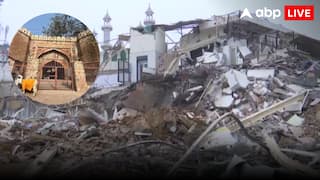German Chancellor Olaf Scholz Bats For ‘Faster Progress’ In Long-Pending India-EU Trade, Investment Pact
Injecting a renewed vigour in bilateral ties, India and Germany on Saturday sought to enhance their strategic and business ties, eyeing China, which has become a common concern for both nations.

German Chancellor Olaf Scholz on Saturday said he will personally ensure that the long-pending talks for having a free trade and investment agreement between India and the European Union (EU) take place soon. His predecessor Angela Merkel had taken a tough stance on the issue.
India and the EU have been negotiating a trade deal since 2007. However, the deal has missed several deadlines since then. However, due to Germany and France, the FTA could not be signed when it was almost nearing conclusion back in 2012-2013 over tariff issues, especially in the automobiles and the wines and spirit sectors.
“We want to strengthen trade relations between the European Union and India. That's why we're both committed to ensuring that the free trade agreement between our countries finally works out - a very important topic. I will also personally do my best to ensure that this matter does not take as long as it has in the past and that faster progress is made possible,” Chancellor Scholz said on Saturday during a joint press meet with Prime Minister Narendra Modi.
Scholz is on his maiden visit to India as the new German Chancellor. Apart from meeting Prime Minister Modi, the Chancellor called on President Droupadi Murmu. He also held a business roundtable in an effort to make it easier for German companies to expand and invest more in India.
In his statement to the Press, the Chancellor said that there are 1,800 German companies currently operating in India that have created “tens of thousands of jobs” and are among the largest foreign investors.
“The intention is that this will continue. These investments will be expanded and the number of employees will be massively increased. The various agreements concluded by the economic operators in my delegation are a sure sign of this. Incidentally, another sign of this is that the next Asia-Pacific conference of German business will take place here in India in 2024,” he added.
India, on the other hand, focussed more on enhancing security and defence ties with Germany by way of greater collaboration in manufacturing products in India and also in counterterrorism.
“Security and defense cooperation can become an important pillar of our strategic partnership. Together we will continue to make efforts to fully realize our untapped potential in this area. In the fight against terrorism and separatism, there is an active cooperation between India and Germany. Both the countries also agree that concerted action is necessary to end cross-border terrorism,” said Modi.
According to Foreign Secretary Vinay Kwatra, India considers the defence partnership with Germany to be an important “pillar” in their bilateral ties. Both India and Germany are collaborating on strengthening maritime security under Indo-Pacific strategic construct.
In the area of energy security, both sides decided to further the ties under the Indo-German Green and Sustainable Development Partnership (GSDP).
India and Germany also signed five MoUs, primary among those being the ‘India-Germany Vision to Enhance Cooperation in Innovation and Technology’ and ‘Letter of Intent between Department of Science & Technology and Fraunhofer Institute for Solar Energy Systems for Cooperation in Green Hydrogen and Clean Energy Technologies’ under government-government level.
IMPACT OF RUSSIA-UKRAINE WAR ON ECONOMY
According to Chancellor Scholz, securing the world's food and energy supply has become a key challenge due to the ongoing Russia-Ukraine war.
“We must ensure that the terrible war of aggression that Russia has launched against Ukraine does not lead to price increases, energy shortages or food crisis in any of the countries in Asia, Africa and South America. It will, therefore, be a very important focus of our efforts to prevent this,” he said.
Scholz added, “You don't use force to move borders... revisionism should not be the basis for the actions of states.”
PM Modi has been saying since the beginning of the war that India has insisted on resolving this dispute through dialogue and diplomacy. “India is ready to contribute to any peace process. We have also agreed that reform of multilateral institutions is necessary to reflect global realities in a better way. This is evident from our active participation within the G4 to reform the UN Security Council,” he added.






































